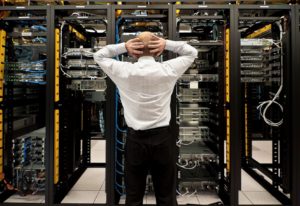When you’re working in a business, one of the most important things to remember is managing your data. Whether you’re trying to keep it organized, or are deciding which files to delete, keeping your info secure is important. After all, you never know what could happen in the workplace. If anything, some of the most common disasters are completely unpredictable.
With that said, having a disaster recovery plan for your data is important. However, you need to be aware of some of the common disasters that can happen in a workplace as well. Sometimes these incidents are beyond your control, but other times, it’s entirely your fault. Overall, here are some of the causes for disasters that can happen in the workplace.
#1. Natural Disasters
One of the most common reasons businesses experience tragedy, is because of natural disasters. Sometimes, it’s a relatively small incident such as power outage. Occasionally, though, it’s downright devastating, such as a tornado or a hurricane. Not only do you experience a loss of data, but the workplace is destroyed as well. However, the worst part about the latter, is that essentially, it’s beyond your control. That’s not to say you can’t backup your information and prevent a loss of data, but the weather event itself can’t be avoided. With that said, you need to make sure you have a disaster recovery plan for any instance, big or small.
When dealing with a power outage, for example, make sure to have your information stored on a flash drive. That way, you still have all your data accessible even if an incident were to occur. Unlike weather related incidents, which you may know about even days ahead of time, power outages can happen in the blink of an eye. As for natural disasters, not only should your data be stored as well, but you should also have numerous buildings set up as part of your company. That way, it’s easy to transfer your data and continue on with your work.
#2. Careless Mistakes
As I had mentioned earlier, some incidents are beyond your control, while others are entirely your fault. It’s funny how many disasters in the workplace could be avoided if people just used some common sense (myself included). Sometimes, a disaster might befall your business because of the employees. For example, they may be uneducated on the importance of keeping your business data secure. Not to mention they might be unaware of the tips and tricks hackers use to compromise sensitive information. With that said, it would be easy for them to fall into a cybercriminal’s trap.
Let’s say one of your unsuspecting employees visited a website, and entered some personal information. Next thing you know, their business computer is infected, and they are unable to access their files. Other times, though, a disaster may be due to carelessly deleting files. You may end up discarding sensitive data that you thought wasn’t needed anymore. Always double-check to see if what you’re about to delete, will have any value in the future.
#3. Outdated Hardware
Another common disaster in the workplace, relates to outdated hardware. This is especially true if you own a personal laptop. Some business owners are relatively laid back about storing their data, as they feel their personal computer has a relatively long lifespan. However, that’s what many developers want you to think. Nowadays, to reduce the costs of developing a product, many devices are built with cheap hardware, laptops included. Not only does this shorten the lifespan of your computer, but it’s no coincidence that many laptops start experiencing problems shortly after the warranty expires. With that said, you want to have your data backed up at all times. There’s nothing more devastating than an unexpected crash causing you to lose all your data. Especially when you know you could have done something to prevent it.
For more information about backup disaster recovery, as well as common disasters that can befall a business, contact us today at SystemsNet. We look forward to hearing from you.


